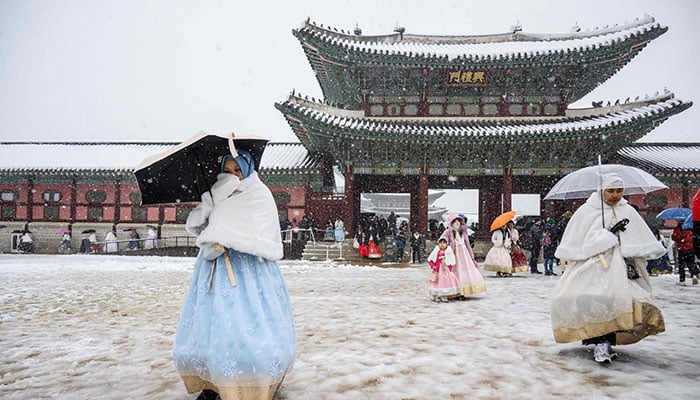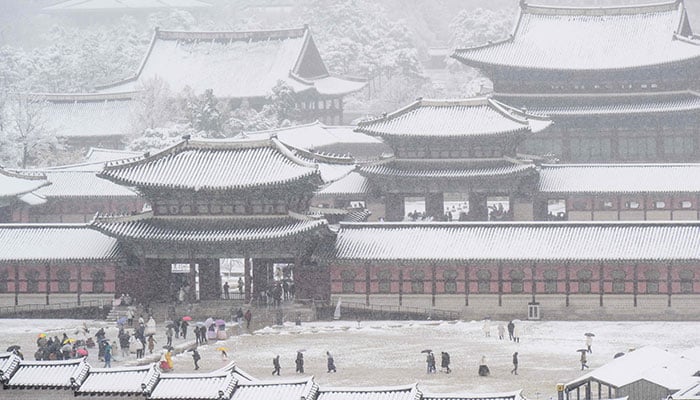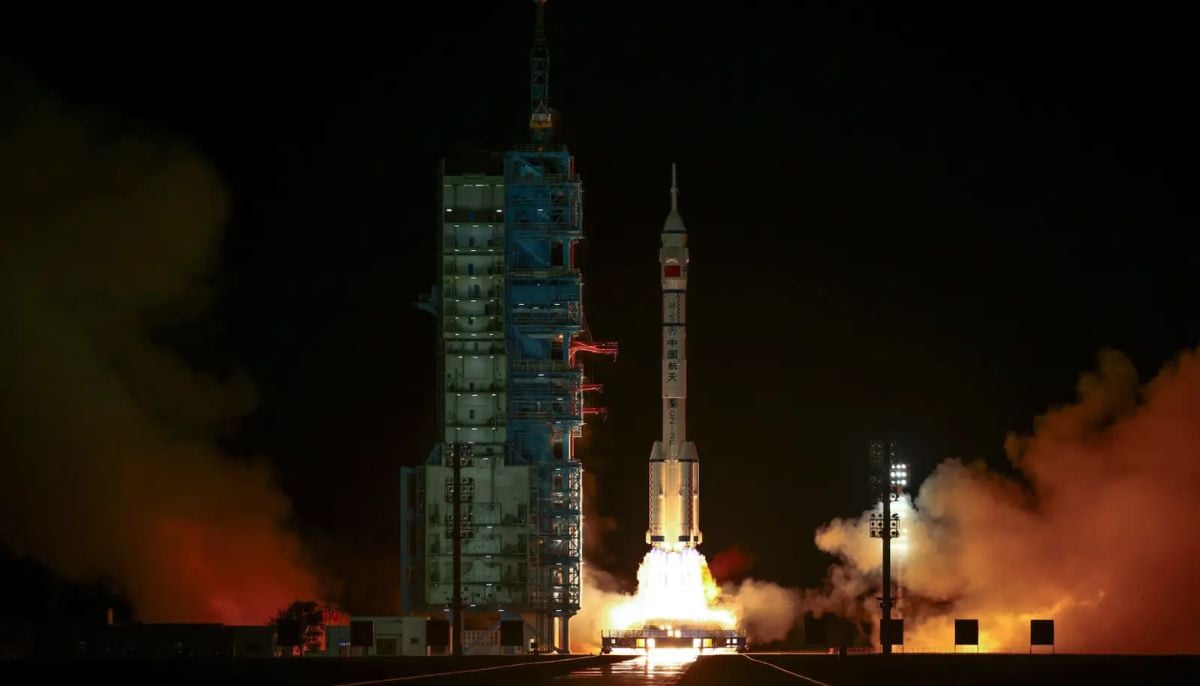In pictures: Seoul hit by 'record November snowfall'
Heavy snow warning urges residents to "refrain from operating vehicles, engaging in outdoor activities"
South Korean capital Seoul was blanketed on Wednesday by the heaviest November snowfall since records began over a century ago, the weather agency said.
According to the Korea Meteorological Administration, 16.5 centimetres (6.5 inches) of snow fell by 7am (2200GMT Tuesday), compared to Seoul's previous record of 12.4cm on November 28, 1972.
Coincidentally being the first snow of the season in Seoul, it is the highest figure in November since the agency set up nationwide observation posts in 1907.
A heavy snow warning urged residents to "refrain from operating vehicles and engaging in outdoor activities" and to "beware of falling trees".
Such warnings are issued when snowfall accumulates to 20cm or more within 24 hours.
As heavy snow fell nationwide, multiple accidents occurred due to vehicles sliding on icy roads, though no major injuries have been reported.
Falling trees caused power outages, affecting more than 150 households around Seoul in the morning.
Main roads were closed for maintenance, leading to severe traffic congestion, while at least 22 domestic flights were cancelled, and several others were delayed, according to the transport ministry.
President Yoon Suk Yeol called on officials to "minimise potential damage and public inconvenience caused by the snow," as the heavy snowfall is expected to continue until Thursday morning.
The heavy snowfall was caused by the "significant temperature difference between the sea surface and the cold air," Youn Ki-han, director at Seoul's Meteorology Forecast Division, told AFP.
"Over the West Sea, moisture forms, and when cold air from the north moves down as it typically does, if the West Sea is also cold as in previous years, the temperature difference is smaller," said Youn.
However, due to the unusually warm temperatures in recent weeks, this difference became more pronounced.
Another factor behind the heavy snowfall, Youn added, is that "the strong snow was consistently carried by the westerly winds, pushing it into the Seoul metropolitan area."
"Snow kept falling in the same areas repeatedly, leading to greater accumulation."
Up to 20cm of additional snowfall is expected to fall around the capital, according to the weather agency.
-
Trump refuses apology for video depicting Obama as apes amid growing backlash
-
US appeals court affirms Trump’s immigration detention policy
-
Epstein probe: Bill, Hillary Clinton call for public testimony hearing
-
Epstein ties: UK police search properties in probe into Peter Mandelson
-
Three killed, several injured after car crashes straight into Los Angeles supermarket
-
Inside Jeffrey Epstein's troubling final days before suicide
-
Woman, five others accused of plot to kill judge 'to free jailed lover'
-
Japan’s cherry blossom festival canceled in Fujiyoshida; Here’s what to know















